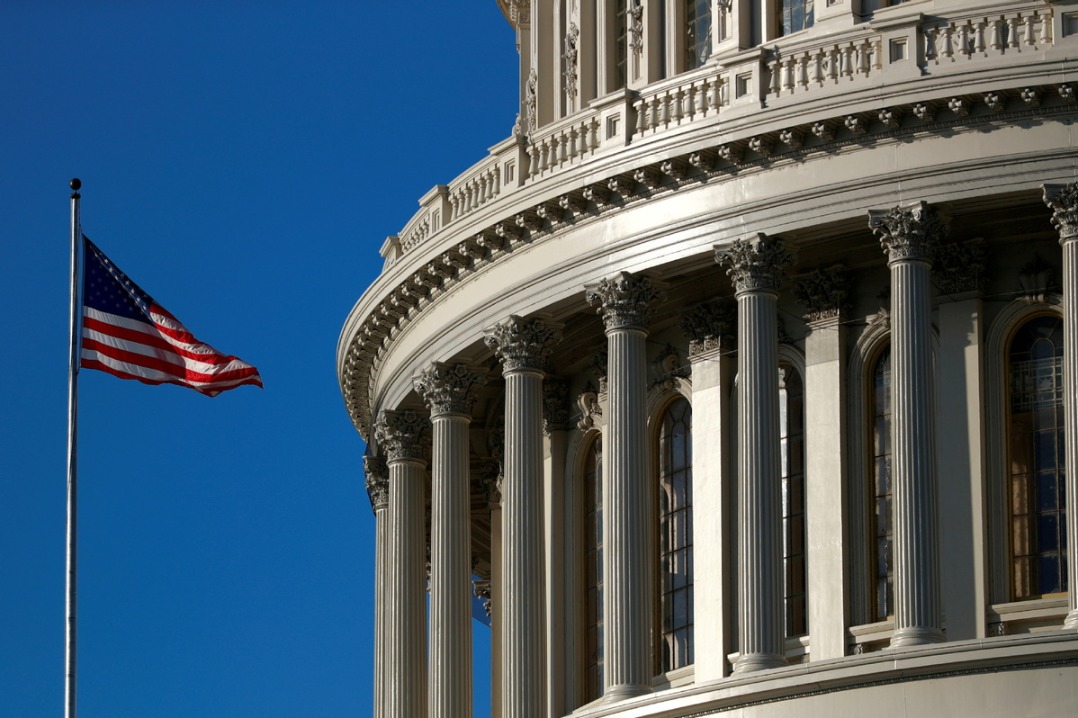US will soon realize the folly of a tariff war


It is unwise to predict if the burgeoning tariff war between the world's top two economies will be a short or protracted fight, given the unpredictability of US President Donald Trump. That is because after the US midterm elections in November, the economic impact of Trump's approach could become clearer.
Making good on his threat to levy punitive duties on imports for the benefit of the US economy, the Trump administration proposed 10 percent tariffs on thousands of Chinese products worth $200 billion on Tuesday, following hefty duties imposed on $34 billion of Chinese imports on July 6.
Last week, the Bank of England, Britain's central bank, forecast that further escalation in the trade dispute, or a 10 percentage-point rise in tariffs between the US and all of its trading partners, could chip 2.5 percent off US output and 1 percent off global economic output.
David Dollar, a senior fellow at the Brookings Institution's John L. Thornton China Center, also said things are more likely to change only after the midterm elections. "Protectionism will be bad for the US economy, but it will take some time for this effect to become evident," Dollar told China Daily. "After that (midterm elections) there is more chance for the two sides to negotiate a truce," he said, and cautioned that the US could lose substantially if Trump stretches the trade conflict.
"It (China) is gradually opening up more sectors of its economy, such as automobiles and financial services. If the US persists in the trade war, then American firms are likely to be shut out as China opens up," he wrote in an article on July 6. "Do not be surprised if in 2019 the US takes the offer that has been on the table, dressing it up a bit in order to declare victory," Dollar said, referring to China's earlier offer to buy more agricultural produce, and energy and high-tech products. The offer was invalidated because of the US move to implement tariffs.
Trump's job approval rating stood at 41 percent at the end of last week, down from 45 percent in the week ended on June 17, according to Gallup. His support among his own party remains strong, though. But if the tariff and counter-tariff ripple hurts the US, which it will, Trump's supporters may eventually get tired of all this "winning", columnist Catherine Rampell said.
"It is no coincidence that so many Trump-voting areas will suffer," Rampell wrote in an opinion piece in The Washington Post on June 25. That is because placing tariffs on intermediate goods such as steel and aluminum will hurt the downstream manufacturers that buy those materials and that employ more "Trump country" workers than the US steel and aluminum industries do, Rampell said. Another reason is that the US' furious trading partners are "deliberately" targeting industries located in politically sensitive areas, she said.
Some US companies are already pulling back investments in equipment and jobs "as a result of uncertainty over trade policy", according to the minutes of the Federal Reserve Board's June 12-13 meeting, which were released on July 5. Even in the steel and aluminum industries, producers were not planning new investments to increase their capacity, the Fed reported.
"Trump is convinced that his neo-protectionist policies are somehow winning the day, when, in reality, they aren't," said Jon Taylor, a professor of political science at the University of St. Thomas in Houston. "I'm hopeful that the solution will be that both sides will, after a brief period of reciprocal tariffs, back away from them," Taylor told China Daily.
The likely solution would be to recognize that both sides' interests are best served by engaging in negotiations, negotiations that are in good faith and recognize that while differences will always be a part of China-US relations, there are diplomatic solutions to prevent conflict, Taylor said.
One couldn't agree more.
The author is deputy editor-in-chief of China Daily USA.
huanxinzhao@chinadailyusa.com


































